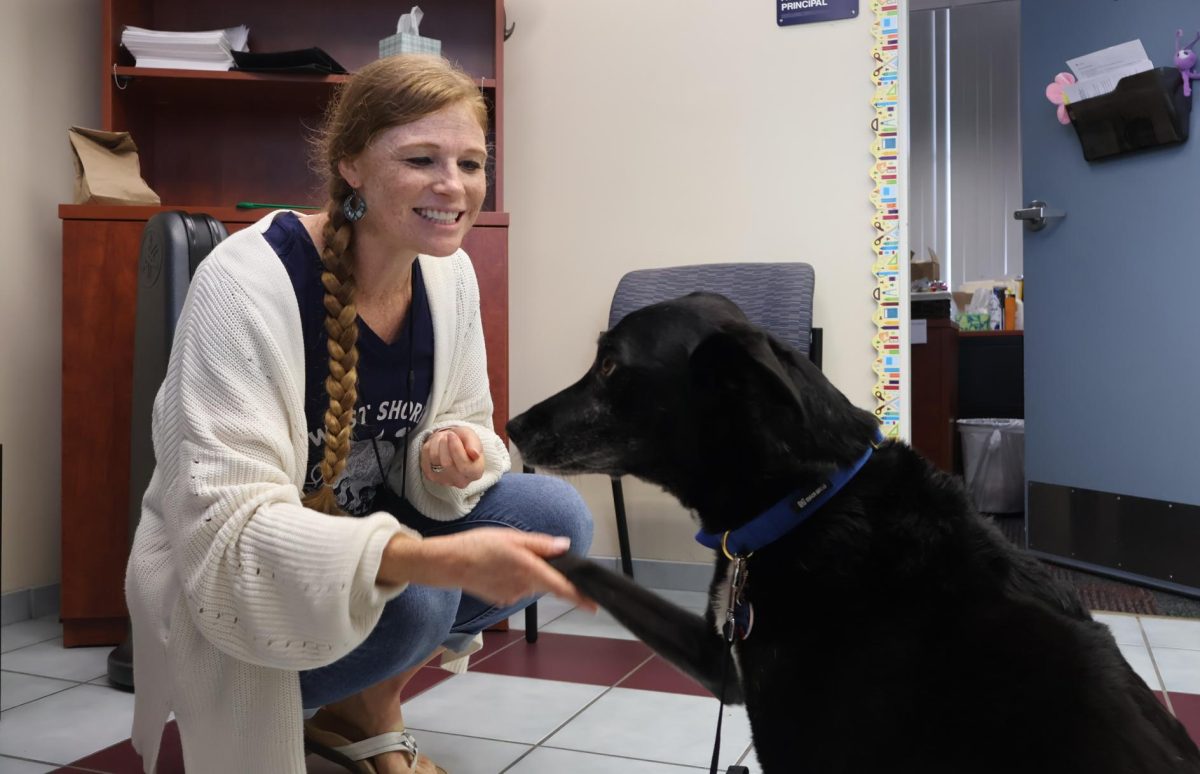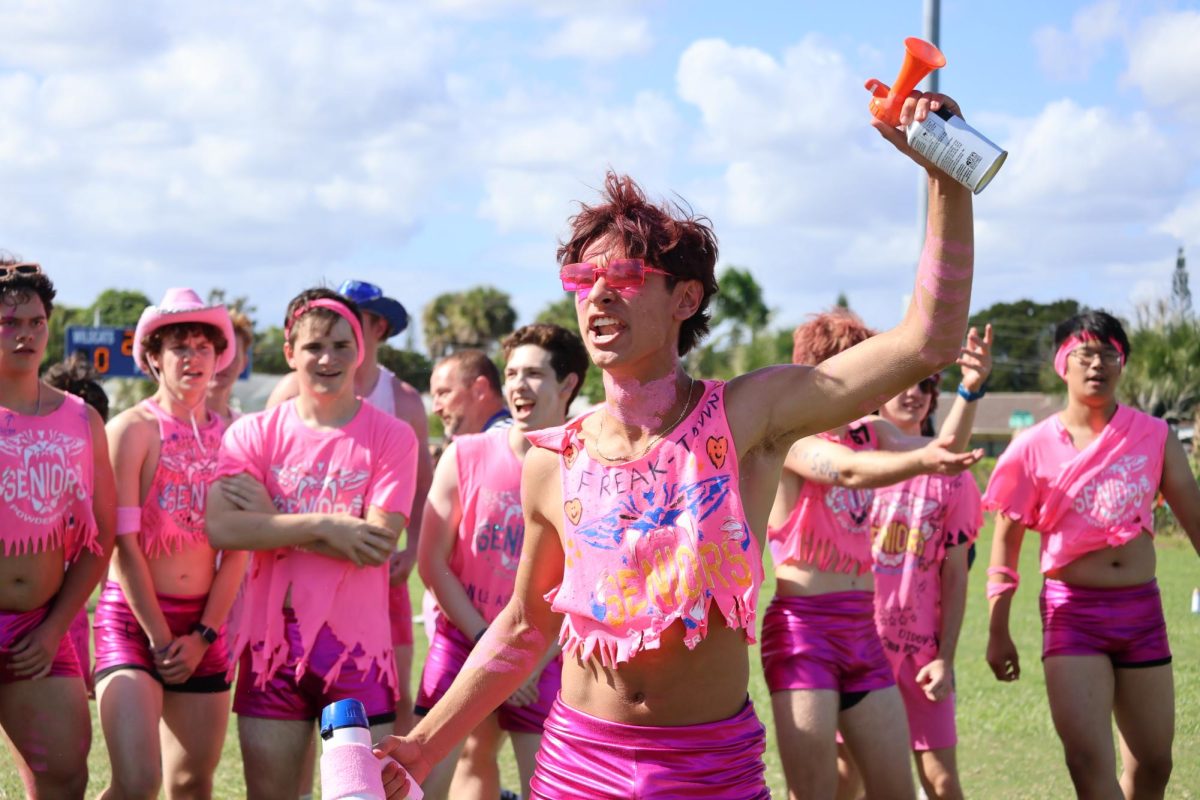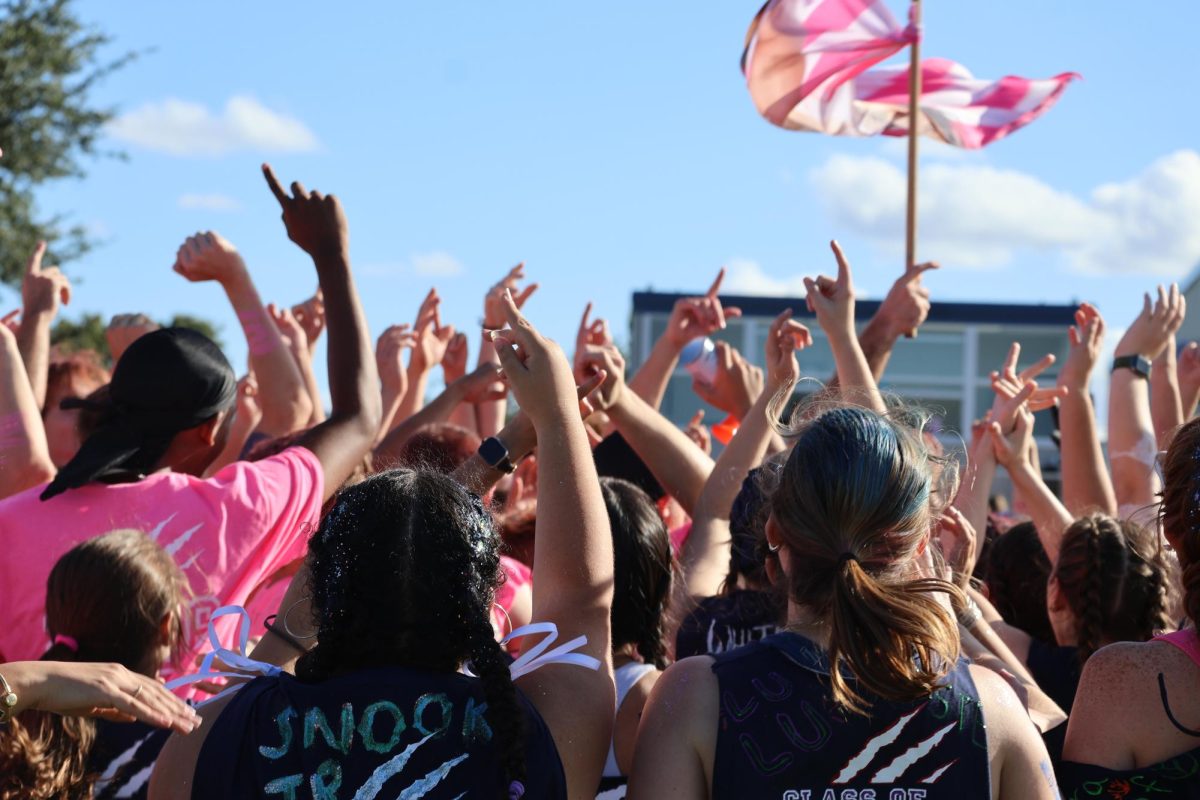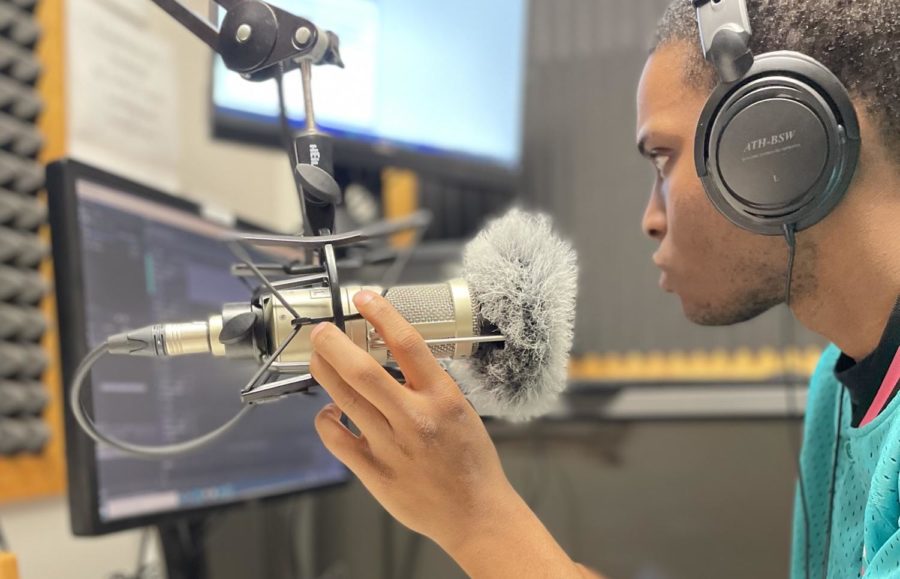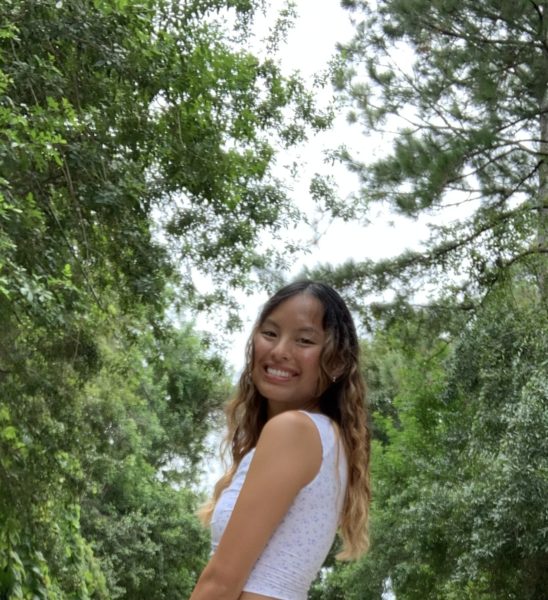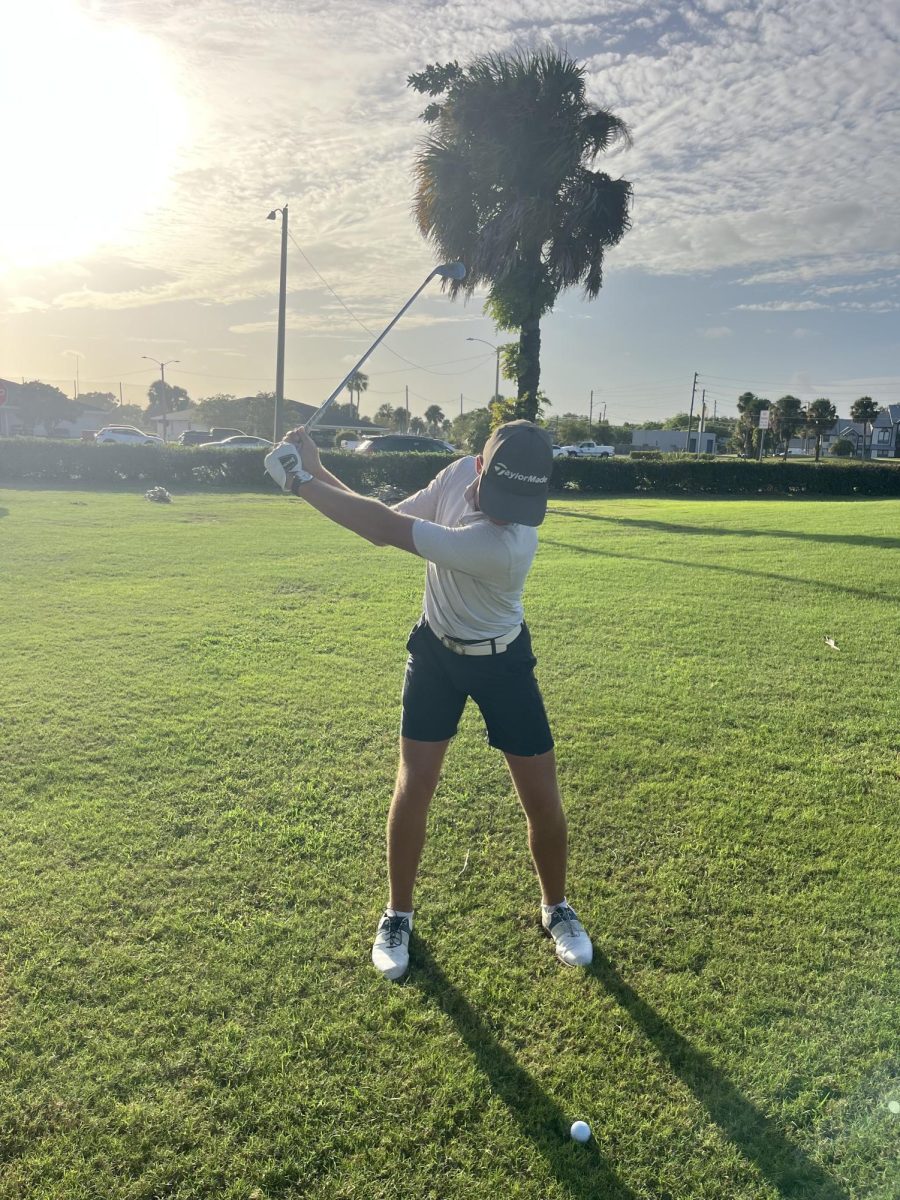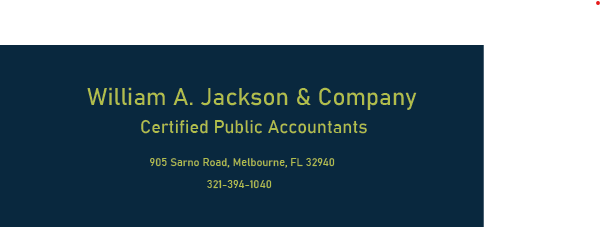Leading the legacy
Alumni pursue journalism in college — and beyond
August 17, 2022
As 2019 graduate and University of Florida junior Macie Goldfarb walked through Wyndham Orlando Resort at Florida Scholastic Press Association’s April 21-23 convention, with more than 1,000 student journalists, she remembered her beginnings in journalism.
Goldfarb is a director and news anchor for WUFT, a public broadcasting station in Gainesville. This year she served for UF’s FSPA office staff to give back to the organization that helped inspire her to pursue a career in journalism.
“I remember being in [their] position, and I know what it can end up as now being in college,” Goldfarb said.
UF junior and 2019 alumna Anna Wilder also worked for FSPA’s office staff. She said she felt a “full circle” experience seeing senior Sophia Bailly as the state chair — a position Wilder held when she was a high-school senior. She works for UF’s new service “Fresh Take Florida” on political and investigative content.
“I wasn’t surprised that Sophia was state chair, I expected it,” Wilder said. “It feels super-good to know she was that person. It gave me a lot of West Shore pride. Now we’ll hopefully see the torch passed on when she gets on [UF’s] campus.”
UF junior and 2019 alumni Shawn Humphrey is a reporter for WUFT. He said storytelling keeps him going.
“My best stories have come when I’ve really been inspired by the stories that the people I’m interviewing are telling me,” Humphrey said. “They all have different aspects of their personality and different things that make them tick to make them individually interesting.”
Humphrey said attending FSPA for three years, in addition to his love for sports, gave him goals to work toward. He met his current multimedia reporting professor, Herbert Lowe, after placing second in FSPA’s “Pardon the Interruption” contest his senior year.
“I was just nitpicking everything and trying to figure out what I can tweak myself, especially what FSPA as a whole could tweak to get better,” Humphrey said.
Humphrey’s passion led him to attend UF and to continue reporting. Humphrey said Lowe “pulled some strings” for him to attend the National Association of Black Journalists National Convention in 2019 before attending UF, which was one of his most memorable moments in journalism.
“I just was able to talk about sports, and I guess [Lowe] thought I was high level,” Humphrey said. “It doesn’t matter what sport it is — it can be a weird sport like cricket — I’ll be able to find some interest in it. If I can figure out how it works, then, you know, I’ll figure out a way to talk about it.”
Goldfarb’s journalism career has grown substantially since high school.
“I’ll research myself, and my UF Summer Media Institute package will come up that I made back then,” Goldfarb said. “I remember coming out of that and deciding that was something I could do as a career. I kind of hit the ground running, and I haven’t stopped. It’s so funny to compare it to the packages I’m making now that are going on to real local news. The fact that I’m anchoring and directing now at a station that broadcasts to about 19 different counties in North Central Florida — it’s pretty wild.”
Goldfarb said aspiring journalists looking to follow a similar path have tremendous power over the information they share with everyone.
“There’s that balance, which is between being unbiased and also sharing about things you’re passionate about,” Goldfarb said. “You’re giving justice to so many different facets of life in the world. It’s a really hard job to do. Journalists are everyone’s source of information, everything that people know, outside of the scope of their own life. It is because of us. People don’t even realize it from the outside looking in. It’s big shoes to fill, but I think that’s what makes it kind of exciting.”
Wilder said people like Goldfarb, Shawn and Bailly are what keep the field alive.
“You can tell when people are passionate about what they want to do,” Wilder said. “The younger generations who come after them don’t do this for money or fame, they do it because they love it. I can see that, and I try to see that in the people I surround myself with. I look at Goldfarb and I now, and I’m so proud of us. I don’t think we would have ever guessed we would have gotten here.”
Goldfarb and Humphrey visited West Shore’s TV Pro staff this past year to witness the staff’s progress.
“When you leave something you put that much time into, you really just want to leave it in better shape than it was in when you got there,” Humphrey said. “When I first got to West Shore, they were doing news maybe a couple times a week. I saw the evolution [to where they are now] just since I’ve left in those three years. It’s really cool to see how they’re going to keep going.”
Wilder said she loves FSPA because the future relies on student journalism.
“I feel like people oftentimes don’t see the value and the extreme importance of uplifting and encouraging young people to go into journalism,” she said. “I think teaching the right things, educating people and getting excited is vital to everything.”
Daphna Krause graduated from West Shore in 2016. She joined the journalism workforce after being a television producer for WUFT News and graduating from UF in 2020.
“I walked into the WUFT newsroom with a portfolio in hand my first semester at UF thanks to work I had previously done at the ‘Roar,’” Krause said. I was put right away on a radio reporting beat and then worked my way up to a producing division there. Once you get a producer position, you can always use those skills that you’ve learned for internships [and jobs].”
Krause always wanted to have a career in journalism.
“My mom was an editor at ‘USA Today’ for 15 years,” Krause said. “I grew up around people who also love to write stories. I think I always had an inkling, but as I started developing more throughout high school, I realized that I could use a variety of my skill sets to pursue journalism.”
Krause “can’t thank her teachers” at West Shore enough. She compared high school journalism to professional journalism.
“Your goal is to communicate and write stories to benefit a community,” Krause said. “You are writing stories that students at West Shore will be interested in or need to know. More broadly as a profession, you’re doing the same thing, but maybe for a wider audience.”
Krause said that information is power.
“The importance of journalism is getting information out to people who need it,” Krause said. “Being able to bring that power to a greater number of people is what really drew me to journalism. I think people will always need information delivered to them. The future of journalism is just continuing to find a way to get it out to people.”



![Sophomore Isabelle Gaudry walks through the metal detector, monitored by School Resource Officer Valerie Butler, on Aug. 13. “I think [the students have] been adjusting really well," Butler said. "We've had no issues, no snafus. Everything's been running smoothly, and we've been getting kids to class on time.”](https://westshoreroar.com/wp-content/uploads/2025/08/IMG_9979-1200x800.jpg)


















